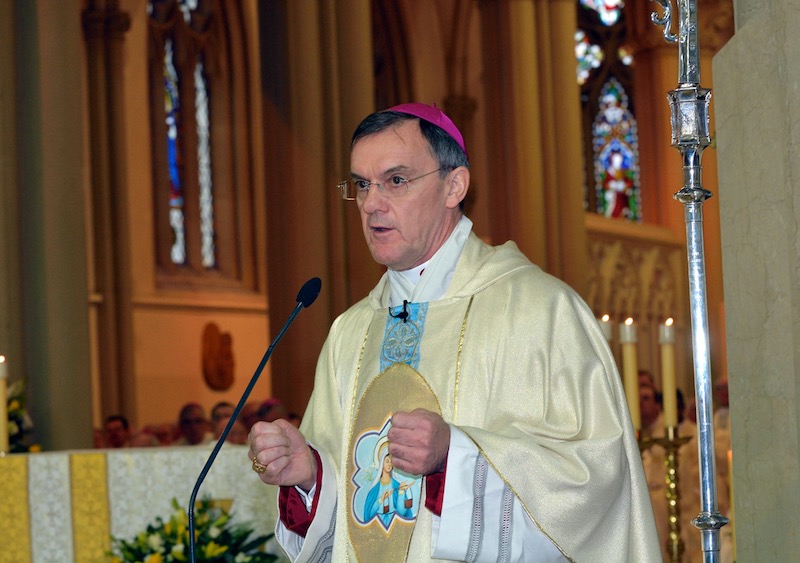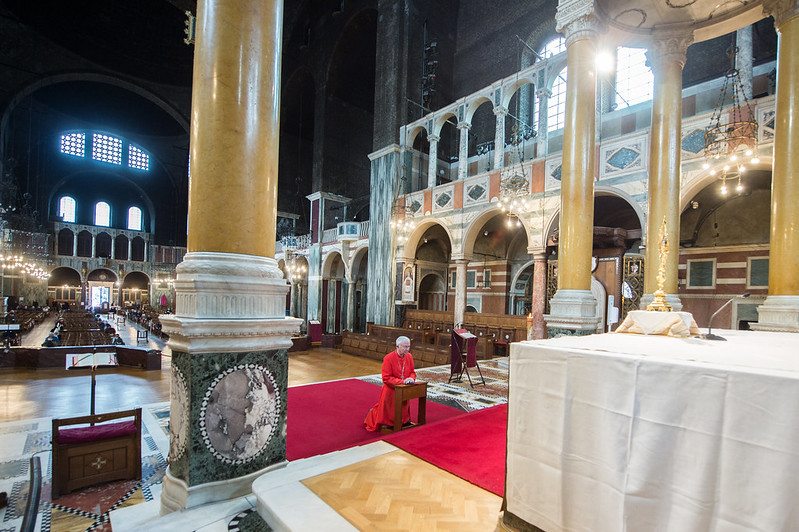Bishops are turning their attention to life after the pandemic with a focus on people who have been drawn to the Church and those who moved away from it in the past year.
In a reflection published following their recent plenary meeting, they urge Catholics once again to place Sunday Mass at the heart of their lives – after a year when many people have been unable to attend Mass at all. As well as the months when churches were locked, many Catholics have continued to not attend due to fears for their health.
In the reflection, called The Day of the Lord, the bishops of England and Wales identify “the Covid curious” – people who might have encountered the Church for the first time during the pandemic, especially through online services, as a group they want to reach. They are keen to connect with people who have lost the habit of going to church and are anxious about doing so again because of their health, and those who have experienced a spiritual gap develop between their lives and a more communal expression of faith.
They also say that there is a great need for Sunday Mass to be restored “to its rightful centrality in our lives” and that they want to encourage people once again to attend.
“We face the task of seeking to nurture the sense of Sunday as “a weekly gift from God to his people”, and something we cannot do without; to see Sunday as the soul of the week, as giving light and meaning to all the responsibilities we live out each day; to see the Sunday Eucharist as food for the unique mission with which we have been endowed”, the reflection says.
With many Catholics still not yet regularly attending Mass on Sunday, the bishops have yet to restore the Sunday obligation to attend Mass, and online livestreaming of Mass will continue for some months to come, the bishops agreed.
Among other issues discussed at their plenary meeting was the new translation of the lectionary which has caused controversy over the language used. In a statement in January the bishops said that they had chosen to replace the Jerusalem Bible versions of the readings with the English Standard Version – Catholic Edition because its translation was accurate, accessible and had dignity but their choice has been heavily criticised for being inaccurate and for lacking inclusive language.
Malcolm McMahon, the Archbishop of Liverpool, said that liturgy and biblical scholars were evenly split over the merits of the translation. Work was continuing regarding the translation and the bishops were listening to people’s views of it, he said. The proposed new lectionary needs to be approved by Rome before it is used and despite the time taken up with studying objections, it should be in use by next year as planned.
* Directors of the new Catholic Safeguarding Agency, which is being set up to replace the Catholic National Safeguarding Commission and Catholic Safeguarding Advisory Service, should be appointed in May, said Archbishop McMahon. Members of the board of the CSA will be largely laypeople and the chair will be lay, he said. Creation of the new agency follows criticism of the Church’s previous safeguarding efforts by the Independent Inquiry into Child Sexual Abuse. Archbishop McMahon said he was confident that the new body “will be fit for purpose” and “it is a really important step forward in safeguarding”.



 Loading ...
Loading ...